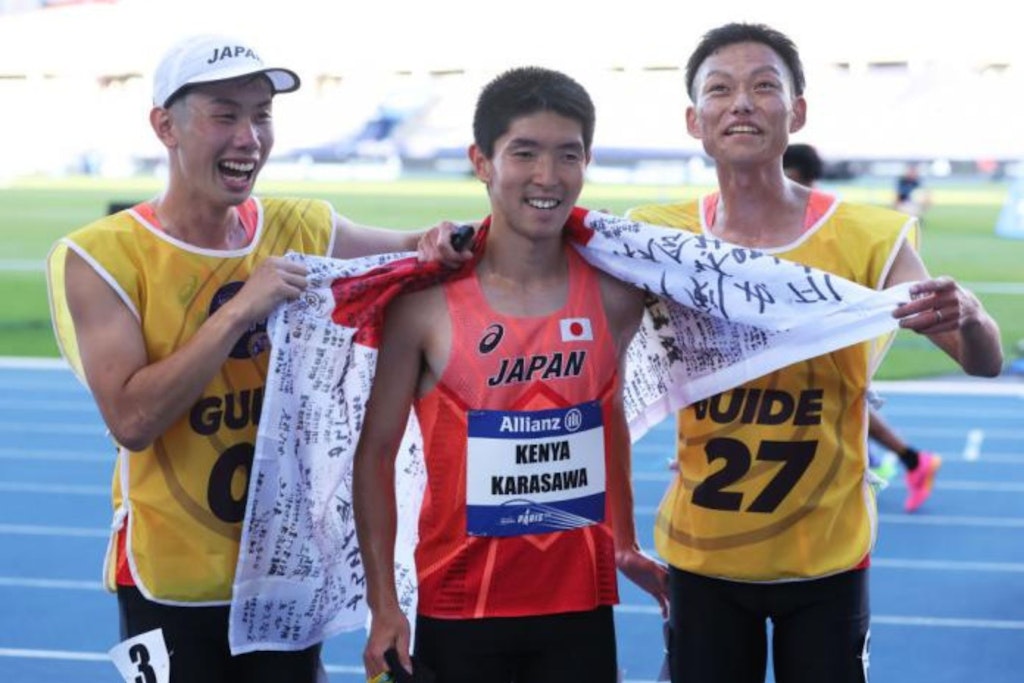How Para Athletes with vision impairments can sprint
![Paralympians living with vision impairment have to keep pace with their guides in an impressive show of camaraderie and determination. [Image courtesy of Chen HW via Shutterstock]](https://agedcareguide-assets.imgix.net/news/articles/wp/blindrunspara.jpg?fm=pjpg)
Key points:
- The World Para Athletics Championships were held from July 8 – 17, 2023, at Charlety Stadium in Paris, France
- 1,330 athletes from 107 nations attended the Championships
- Para athletes with vision impairment are classified as either T11, T12 or T13 in track events
The second largest disability sporting event in the world, the World Para Athletics Championships have officially concluded for 2023, after an exhilarating series of athletic feats set the stage for the Paralympic Games in 2024. The Paralympic Games, much like the World Para Athletics Championships, will be held in Paris, France, as many seek to return after setting new benchmarks for sporting stardom in July.
Japanese Para Athlete Kenya Karasawa and guide-runner Koji Kobayashi both took home Para Athletic sprinting medals in 2023 and shared their secret to success in sprinting with a vision impairment.
“I listen to my guide’s footsteps and take my rhythm based on what I hear,” Mr Karasawa told the International Paralympic Committee.
“All of my guide-runners have their own running forms and the way they run differs from person-to-person. So I also ask them to follow my rhythm as well.”
Karasawa topped the podium in the men’s 5,000m T11 with guide-runner Shunya Morishita, claiming gold in a Championship record time of 15:05.19. He followed that up with a silver medal in the men’s 1,500m T11 alongside guide Koji Kobayashi.
T11 sprinters, such as Karasawa, are blindfolded and compete with a guide, keeping pace with their footsteps and their fingers are tethered together to stay within distance. Other classes of visually impaired Para Athletes may run independently if they are capable of competing without assistance.
Upon achieving a gold, silver or bronze medal at the end of the track event, both the Para Athlete and their guide-runner will take to the podium and receive their own medal, in recognition of each exceptional effort.

“I can’t run by myself so the most difficult part was getting more people who can support me. I’ve been able to succeed because I have a sense of appreciation for everyone who support me and because I concentrate very well,” Mr Karasawa said.
Mr Karasawa’s guide-runner said he intends to become the world champion, which fuels the desire to continue his work with inspiring Para Athletes such as Kenya.